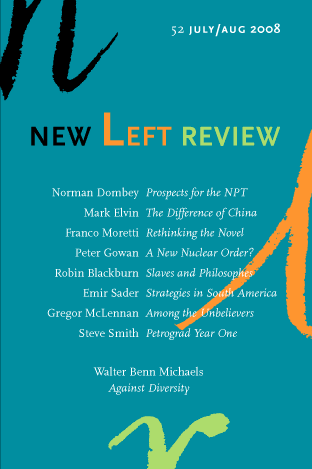
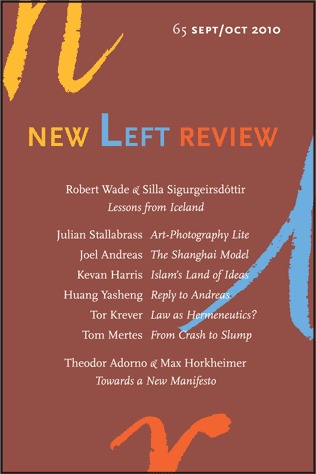

Books in series

New Left Review 52
2008

New Left Review 65
2010

New Left Review 66
2010
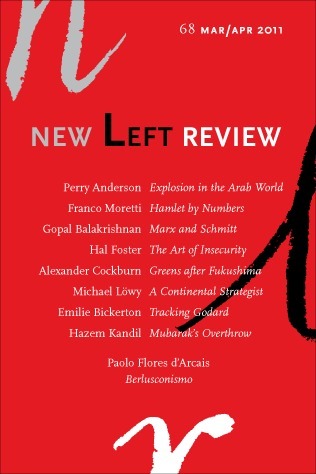
New Left Review 68
2011

New Left Review 69
2011

New Left Review 70
2011

New Left Review 72
2011

New Left Review 73
2012

New Left Review 74
2012

New Left Review 75
2012

New Left Review 76
2012

New Left Review 77
2012

New Left Review 78
2012

New Left Review 79
2013

New Left Review 80
2013

New Left Review 81
2013

New Left Review 83
2013

New Left Review 84
2014

New Left Review 85
2014

New Left Review 86
2014

New Left Review 88
2014

New Left Review 89
2014

New Left Review 90
2014
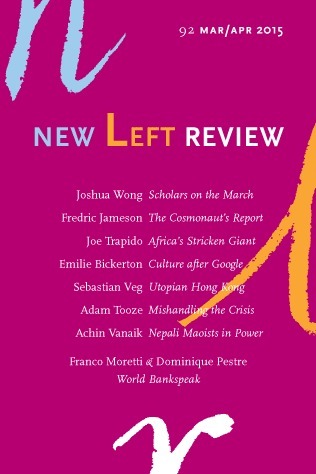
New Left Review 92
2015

New Left Review 93
2015
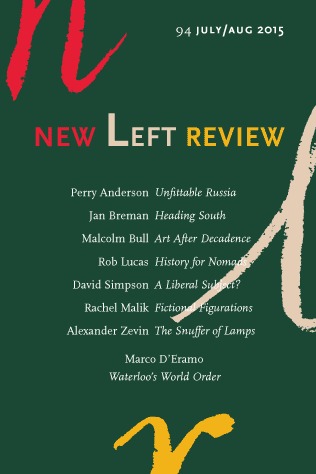
New Left Review 94
2015
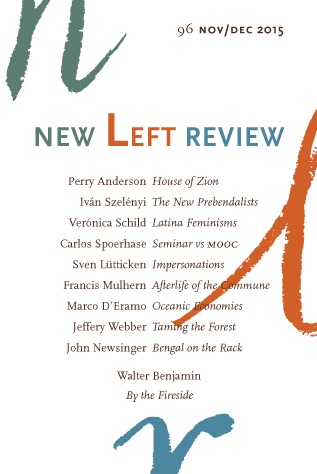
New Left Review 96
2015
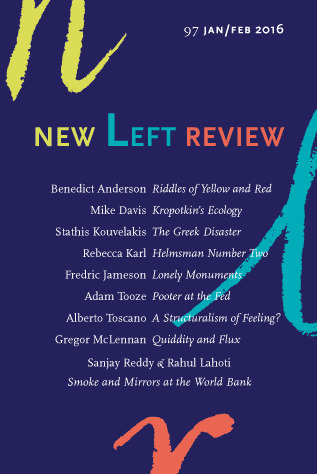
New Left Review 97
2016
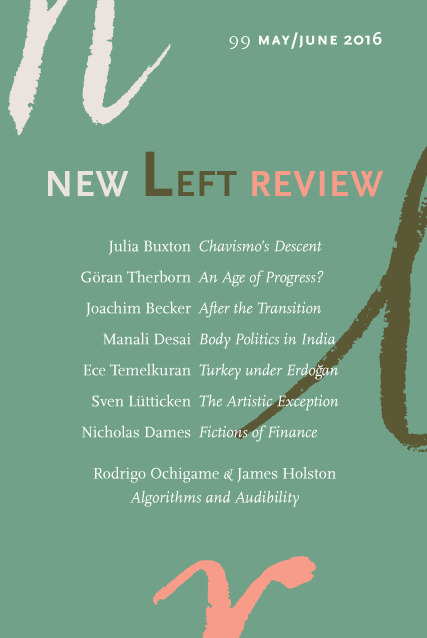
New Left Review 99
2016
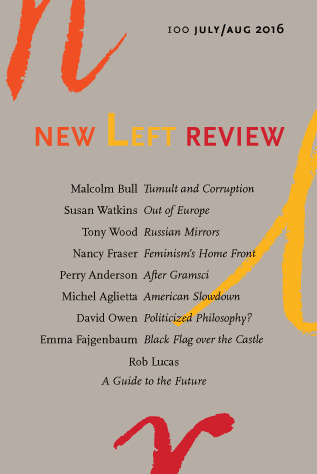
New Left Review 100
2016

New Left Review 101
2016
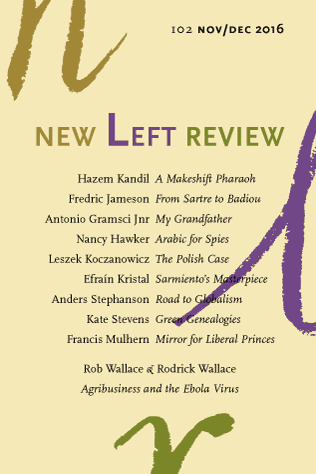
New Left Review 102
2016
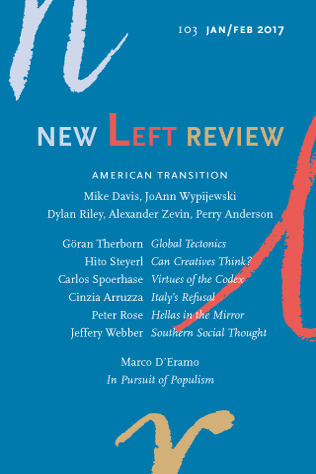
New Left Review 103
2017
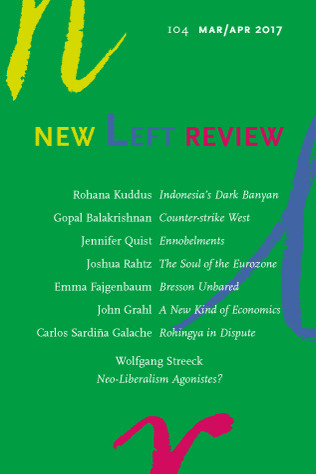
New Left Review 104
2017
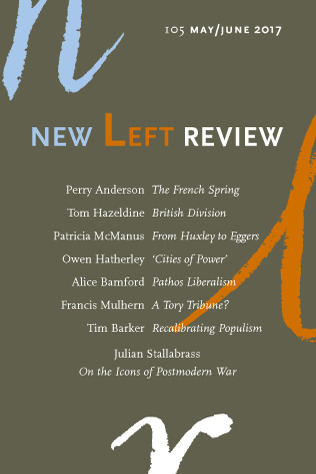
New Left Review 105
2017
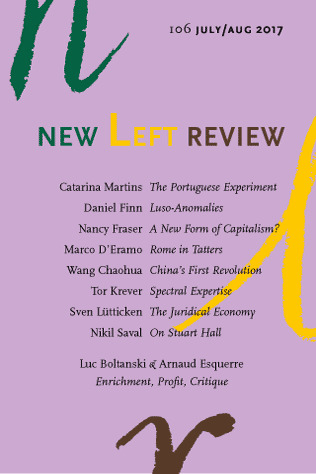
New Left Review 106
2017
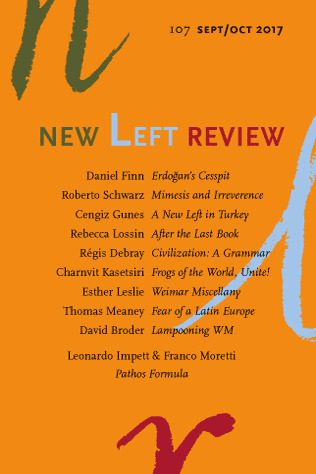
New Left Review 107
2017
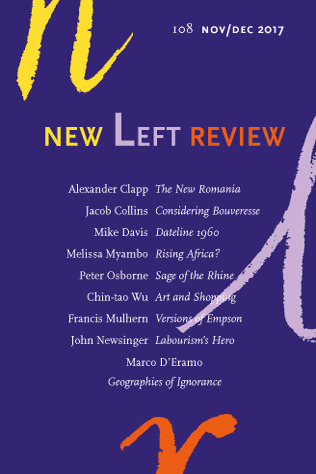
New Left Review 108
2017
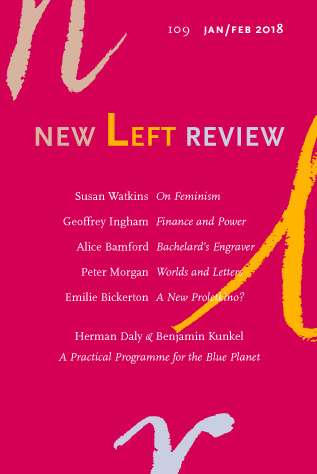
New Left Review 109
2018
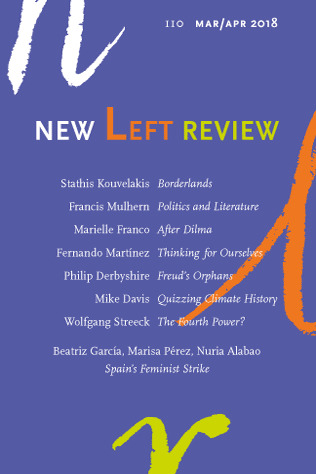
New Left Review 110
2018
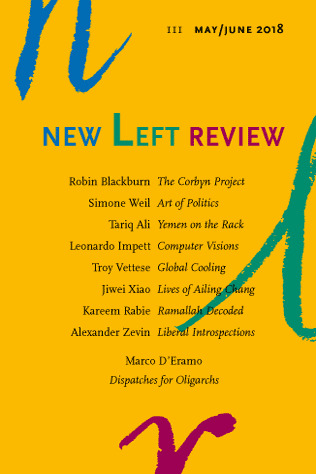
New Left Review 111
2018
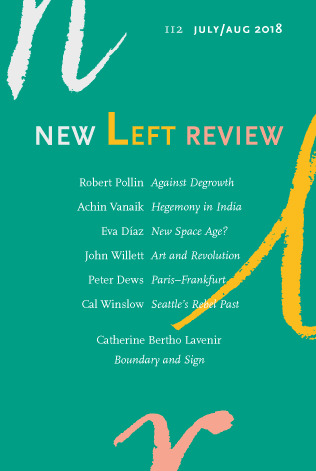
New Left Review 112
2018
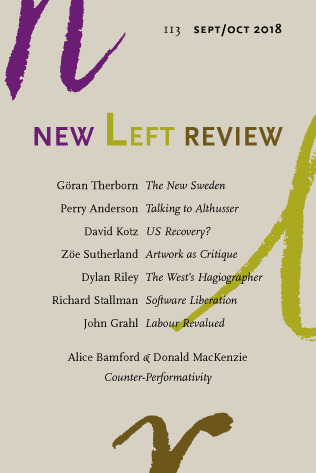
New Left Review 113
2018
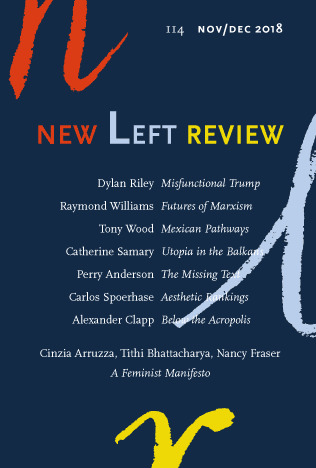
New Left Review 114
2018

New Left Review 125
2023
Authors

Dr Jeffery Webber is a Senior Lecturer at Queen Mary U. Previously he held an Assistant Professor position in Political Science at the University of Regina, Canada. He has also been a Visiting Research Fellow at the Facultad Latinoamericano de Ciencias Sociales (FLACSO) in Quito, Ecuador, the Centro de Estudios para el Desarrollo Laboral y Agrario (CEDLA) and Centro Boliviano de Estudios Multidisicplinarios (CEBEM) in La Paz, Bolivia, and the International Institute for Research and Education in Amsterdam. Over the last few years, he has been invited to speak on Latin American Politics, international relations, and social theory at a number of universities across Europe, North America, and Latin America. Dr Webber's PhD is from the Department of Political Science at the University of Toronto. His dissertation was entitled “Red October: Left-Indigenous Struggles in Modern Bolivia.” His research interests cut across the disciplines of politics, sociology, international relations, history, and anthropology, with a focus on the following themes: Latin American Political Economy; the Latin American Left (Theory, History, and Practice); Marxism; Imperialism, Hegemony, Empire and Globalisation; Colonialism and Counter-Colonial Struggles; Social Movements, Rebellion, and Revolution; Historical Sociology; and International Political Economy.



Tariq Ali (Punjabi, Urdu: طارق علی) is a British-Pakistani historian, novelist, filmmaker, political campaigner, and commentator. He is a member of the editorial committee of the New Left Review and Sin Permiso, and regularly contributes to The Guardian, CounterPunch, and the London Review of Books. He is the author of several books, including Can Pakistan Survive? The Death of a State (1991), Pirates Of The Caribbean: Axis Of Hope (2006), Conversations with Edward Said (2005), Bush in Babylon (2003), and Clash of Fundamentalisms: Crusades, Jihads and Modernity (2002), A Banker for All Seasons (2007) and the recently published The Duel (2008).

Walter Bendix Schönflies Benjamin was a German-Jewish Marxist literary critic, essayist, translator, and philosopher. He was at times associated with the Frankfurt School of critical theory and was also greatly inspired by the Marxism of Bertolt Brecht and Jewish mysticism as presented by Gershom Scholem. As a sociological and cultural critic, Benjamin combined ideas drawn from historical materialism, German idealism, and Jewish mysticism in a body of work which was a novel contribution to western philosophy, Marxism, and aesthetic theory. As a literary scholar, he translated the Tableaux Parisiens edition of Baudelaire's Les Fleurs du mal as well as Proust's In Search of Lost Time. His work is widely cited in academic and literary studies, in particular his essays The Task of the Translator and The Work of Art in the Age of Mechanical Reproduction. Influenced by Bachofen, Benjamin gave the name "auratic perception" to the aesthetic faculty through which civilization would recover a lost appreciation of myth.

A 160-page journal published every two months from London, New Left Review analyses world politics, the global economy, state powers and protest movements; contemporary social theory, history and philosophy; cinema, literature, heterodox art and aesthetics. It runs a regular book review section and carries interviews, essays, topical comments and signed editorials on political issues of the day. ‘Brief History of New Left Review’ gives an account of NLR’s political and intellectual trajectory since its launch in 1960. The NLR Online Archive includes the full text of all articles published since 1960; the complete index can be searched by author, title, subject or issue number. The full NLR Index 1960-2010 is available in print and can be purchased here. Subscribers to the print edition get free access to the entire online archive; two or three articles from each new issue are available free online. If you wish to subscribe to NLR, you can take advantage of special offers by subscribing online, or contact the Subscriptions Director below. NLR is also published in Spanish, and selected articles are available in Greek, Italian, Korean, Portuguese and Turkish. Submissions to the journal are welcome, but please consult the submission guidelines before sending in an article or book review. For queries concerning advertising, bookshop distribution or subscriptions, please consult the full contact details.


John Newsinger is a British Marxist professor of History at Bath Spa University. A book reviewer for the New Left Review, he is also author of numerous books and articles, as well as studies of science fiction and of the cinema. He teaches on both undergraduate and postgraduate courses.

Perry Anderson is an English Marxist intellectual and historian. He is Professor of History and Sociology at UCLA and an editor of the New Left Review. He is the brother of historian Benedict Anderson. He was an influence on the New Left. He bore the brunt of the disapproval of E.P. Thompson in the latter's The Poverty of Theory, in a controversy during the late 1970s over the scientific Marxism of Louis Althusser, and the use of history and theory in the politics of the Left. In the mid-1960s, Thompson wrote an essay for the annual Socialist Register that rejected Anderson's view of aristocratic dominance of Britain's historical trajectory, as well as Anderson's seeming preference for continental European theorists over radical British traditions and empiricism. Anderson delivered two responses to Thompson's polemics, first in an essay in New Left Review (January-February 1966) called "Socialism and Pseudo-Empiricism" and then in a more conciliatory yet ambitious overview, Arguments within English Marxism (1980). http://en.wikipedia.org/wiki/Perry\_An...
